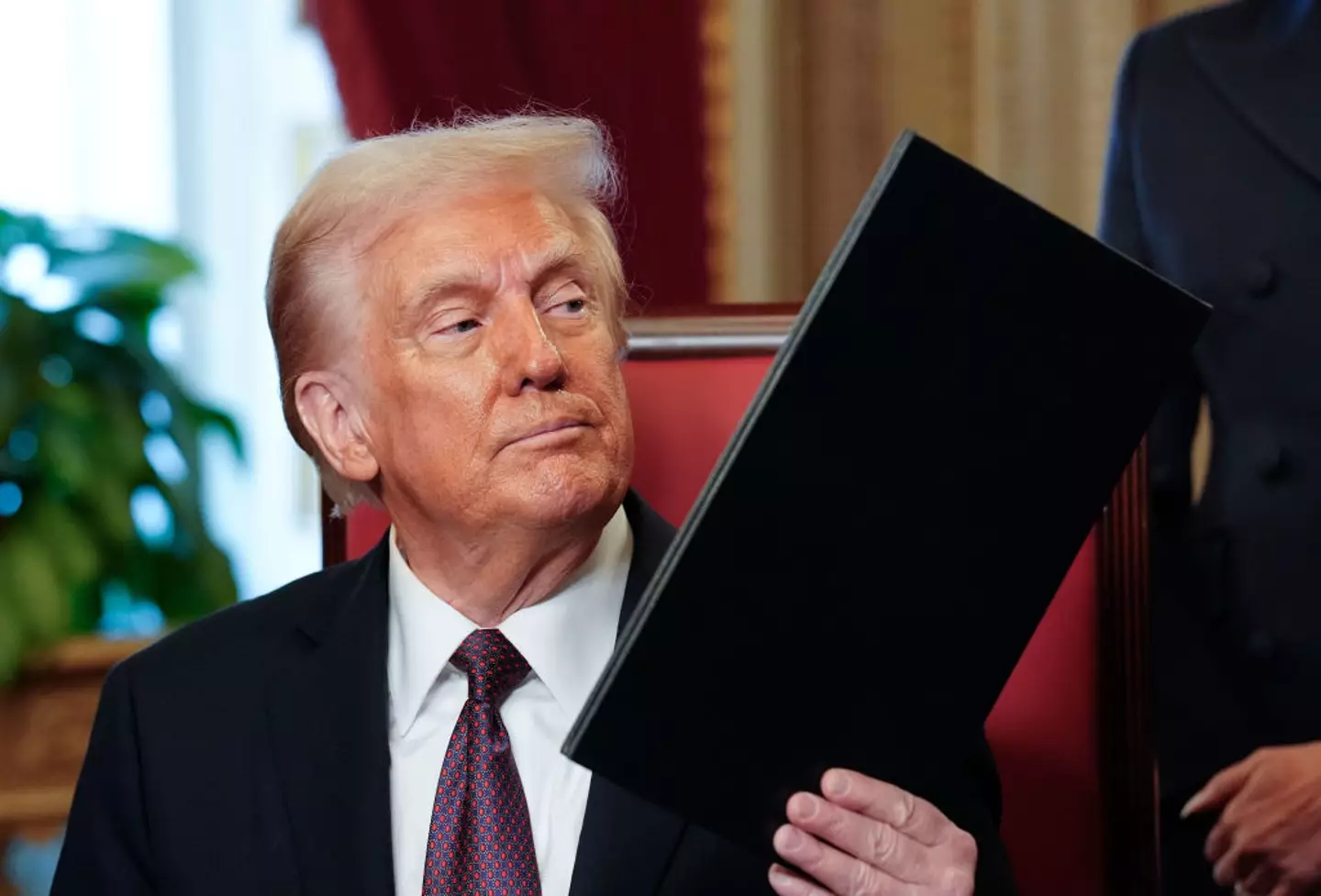In the realm of American politics, bold proposals often ignite fiery debates, and a recent suggestion could be one of the most controversial yet. US Representative Andy Ogles has introduced a proposal that, if enacted, would allow former President Donald Trump to remain in office until 2032. The idea of Trump serving a third term as President has captured headlines and sparked conversations across the nation.
Let’s take a deeper look at this proposal, the motivations behind it, and the potential implications of such a sweeping constitutional amendment.
The Basis of the Proposal: Revising the 22nd Amendment
The 22nd Amendment to the U.S. Constitution, ratified in 1951, limits presidents to two terms in office. However, Rep. Ogles argues that exceptional times call for exceptional measures. In a statement issued on January 23, he outlined his vision for a constitutional revision to allow Trump a third term.
“President Trump’s decisive leadership stands in stark contrast to the chaos, suffering, and economic decline Americans have endured over the past four years,” Ogles stated. He emphasized that Trump’s leadership is uniquely suited to reverse what he described as “the nation’s decay” and restore America to greatness.
Ogles’ proposal suggests changing the language of the 22nd Amendment to permit individuals to serve three terms as president, with certain conditions. The revised amendment would read:
“No person shall be elected to the office of the President more than three times, nor be elected to any additional term after being elected to two consecutive terms, and no person who has held the office of President, or acted as President, for more than two years of a term to which some other person was elected President shall be elected to the office of the President more than twice.”
Why the Proposal Is Being Considered
The driving force behind this suggestion is the belief that Trump requires more than four years to fulfill his vision for America. During his inaugural address upon re-election, Trump declared, “The golden age of America starts now.” However, many of his supporters, including Rep. Ogles, feel that realizing this so-called “golden age” will take more time than the current constitutional framework allows.
Ogles highlighted the challenges of undoing what he described as the “relentless abuses” of the previous administration. He claimed it could take a decade to correct what he views as missteps by the Biden administration, such as economic struggles and foreign policy decisions.
Proponents argue that granting Trump a third term would provide the continuity needed to fully implement long-term reforms and initiatives.

Trump has wasted no time in making some big changes in the White House (Melina Mara-Pool/Getty Images)
The Legislative Path for the Proposal
Changing the Constitution is no small feat. For Ogles’ proposal to succeed, it must first gain approval from two-thirds of both the House of Representatives and the Senate. Following congressional approval, it must be ratified by three-fourths of state legislatures—a process that requires significant political alignment and public support.
This challenging process is designed to ensure that constitutional amendments reflect broad consensus rather than partisan agendas. Given the polarized political climate, achieving such a consensus on this proposal seems unlikely, but its mere introduction underscores the deep divisions in American politics.
Public and Political Reactions
The idea of allowing any president, let alone Donald Trump, to serve a third term has sparked heated debate. Critics argue that the proposal undermines the principles of democracy and the peaceful transfer of power. Many view the two-term limit as a safeguard against authoritarianism, and some fear that removing this limitation could set a dangerous precedent.
On social media, reactions have been mixed. Supporters of Trump have praised the proposal as a bold and necessary step, while opponents have labeled it a threat to democratic norms.
One political analyst remarked, “This proposal highlights the growing trend of political exceptionalism—where certain leaders are viewed as irreplaceable. It’s a narrative that resonates with Trump’s base but raises concerns about the erosion of institutional checks and balances.”
Historical Context: Presidential Term Limits
The 22nd Amendment was introduced in the aftermath of Franklin D. Roosevelt’s unprecedented four terms as president. While FDR’s leadership during World War II was widely celebrated, his extended tenure also sparked concerns about the concentration of power in a single individual.
The two-term limit was intended to prevent future leaders from amassing too much influence over time. Revisiting this amendment would require not only legislative approval but also a reevaluation of the principles that have guided American democracy for over seven decades.
Potential Implications of a Third Term
If the proposal were to succeed, it could significantly reshape the political landscape of the United States. A third Trump term would provide an opportunity for the former president to solidify his legacy and further embed his policies.
However, critics warn that extending the presidency beyond two terms could disrupt the balance of power and weaken the democratic institutions that rely on regular leadership transitions.
Challenges Ahead
Despite its audacity, Ogles’ proposal faces significant hurdles. The two-thirds majority required in both chambers of Congress is a high bar, especially given the current partisan divide. Additionally, convincing three-fourths of state legislatures to ratify the amendment would be an uphill battle.
Moreover, public opinion plays a crucial role in such decisions. While Trump’s supporters remain fervent, polls suggest that a majority of Americans value the two-term limit as a cornerstone of democratic governance.
Conclusion: A Proposal That Reflects a Divided Nation
The suggestion to allow Donald Trump to remain president until 2032 is more than just a political proposal—it’s a reflection of the deep divides and passionate loyalties that define contemporary American politics.
Whether or not this proposal gains traction, it raises important questions about the balance between strong leadership and the principles of democratic accountability. As the nation debates this controversial idea, one thing is clear: the conversation surrounding Trump’s presidency is far from over.

